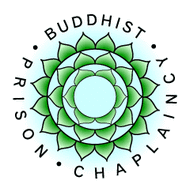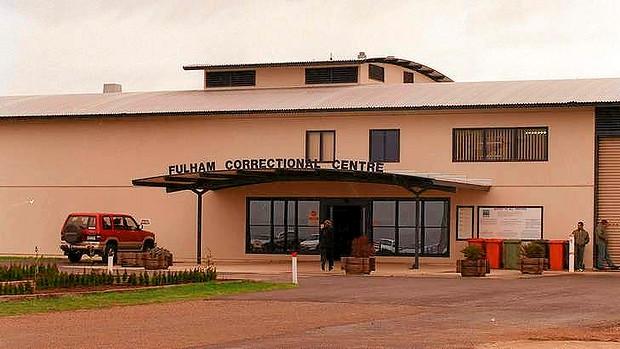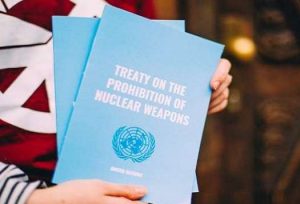Andrew Williams who has studied and received training in the three major Buddhist traditions (Theravada, Mahayana, and Vajrayana) discusses with BDI about his Buddhist chaplaincy and dharma work in prisons in Victoria, Australia. He originally became involved with prison chaplaincy in 2000 while in California due to encouragement from Ven. Thich Chon Tanh. His first experience in Australia was in early 2011 due to a nun, Sadini Huyen Ngoc (see video link below). He has been a Buddhist prison chaplain working through the Buddhist Council of Victoria chaplaincy programme ever since at Fulham Prison in Victoria.
BDI: As a prison chaplain, are the prisoners you visit in Australia Buddhist themselves or from other religions interested in the Buddhist perspective? Are they men, women or both?
Andrew: Currently I visit Fulham Prison, a medium security men’s institution, which is about a two and a half hour drive east of Melbourne. I see mainly inmates from a Buddhist background, predominantly English, Chinese and Vietnamese language speakers although, I do see and talk with non-Buddhists too. They seem to like the peaceful, non-bias, and non-judgemental atmosphere Buddhism offers. Also, I have visited a women’s prison too, although not regularly.
Generally, Andrew’s motivation as a prison chaplain is to share the precious teachings of the Dharma for the benefit of all. He officially visits the prison as a Buddhist Chaplain and Dharma Teacher. Chaplains from other religions also visit the inmates, including Christianity, Judaism, Islam, Hinduism and indigenous.
BDI: Do you teach meditation to the inmates you visit?
Andrew: Yes, I teach meditation to the inmates as part of the visit, both formally and spontaneously. Generally, I teach Mindfulness of Breathing, Universal Loving Kindness (Metta) Meditation and Forgiveness Meditation, depending on individual and group needs.
Buddhist material can be found in the Education Department’s libraries, the prison chapel and chapel office. On each visit, Andrew brings Buddhist books, images and prayer beads.
Different prisons under Corrections Victoria have made a commitment to the provision of chaplains from all religious traditions at each facility to assist inmates with their personal rehabilitation and spiritual and worldly wellbeing. Many of the inmates are seriously interested in Buddhist studies and practice while some others are simply looking for peace of mind and relief from suffering.
Upon release from prison, follow up Dharma care programmes are available at the community level but Andrew feels there is a need for more of this type of support. Released prisoners and those on parole can find assistance about community work programmes at various temples, as well as finding help at a more personal level.
BDI: Please explain your typical visit for prison dharma work.
Andrew: I visit the prison twice a month, on the second and last Thursday and each visit is for six hours. During each visit I offer a formal one hour meditation session, thirty minutes chanting and one hour Dharma talk. On average, there are between twenty and thirty inmates for each session. Also, during the day I also talk to the men in small groups or one on one to discuss the Dharma, meditation or any issues of concern. Sometimes, I also talk with the guards and prison management. In addition to the six hours at the prison, I have five hours of driving. I have learnt much about others and myself by doing this type of work, especially realising many different methods of sharing the Dharma with many different types of people.
Andrew feels that, at present, there are Buddhist chaplains available both at state level and the country as a whole but there is always a need for more chaplains whether they are ordained or lay Dharma teachers or others with a genuine compassion and love with a good fundamental understanding of the Dharma. Andrew actively encourages the participation in prison dharma work of any serious Dharma practitioner with time, energy and focus of mind in order to bring benefit both to themselves and to others.
BDI: Do you find that some Buddhists are against interacting with and helping prisoners because it may bring them bad karma and loss of merit? What is the basis for their fears?
Andrew: I haven’t directly experienced this attitude, although I have heard about such cases. Obviously, the chaplain should have a good foundation in Dharma knowledge and practice to avoid soaking up any negative energy. But this is also the case outside the prison walls in society in general too. If I do encounter anyone who really has an aversion to attending a place like a prison, I would softly enquire their reasons. Then possibly encourage them to let go of any bias, to practice and develop the Four Immeasurables of Universal Love, Compassion, Joy and Equanimity. Also, encourage them to practice generosity, namely the giving of material aid, protection from fear and the Dharma.
Andrew believes that from a Buddhist perspective, Australian prisoners should be given more opportunities for self-rehabilitation and learning how to integrate back into society peacefully, harmoniously and wisely. Dharma materials also should be more readily available.
Andrew has found that his work as a Buddhist prison chaplain has benefitted his own Buddhist practice in many ways, for example deepening his understanding of the intricate working of the law of karma and the interdependency of all sentient beings.
Andrew’s commitment to the chaplaincy programme at Fulham Prison and his reaching out to the inmates with the teachings of the Dharma is an inspiration for all of us. Below are relevant links for those who may wish to pursue this further, especially if you live in the Melbourne area.
See more
Buddhist Council of Victoria Prison Chaplaincy Programme
Andrew’s website: http://dhammatalks.wordpress.com/














